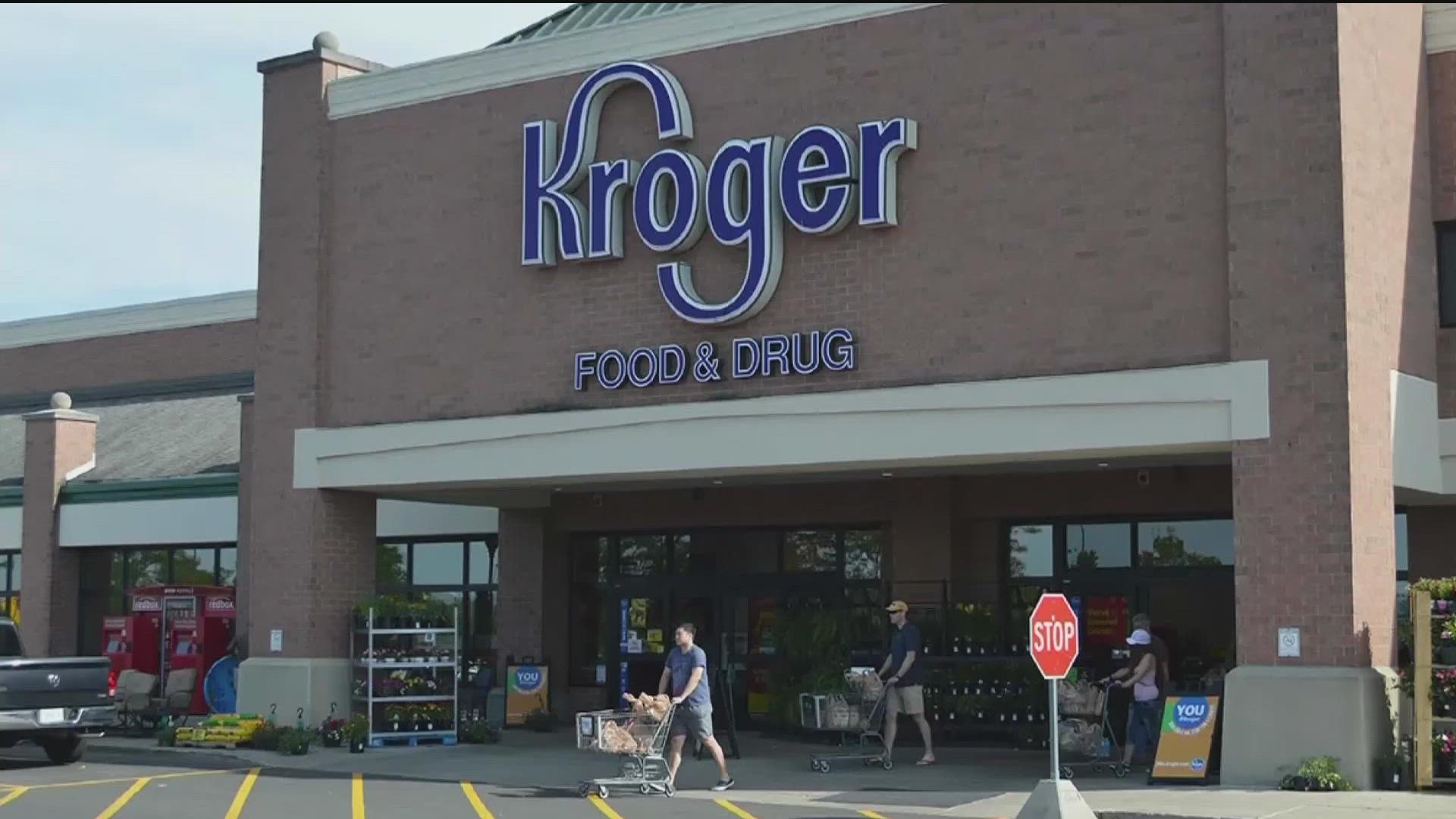SAN DIEGO — San Diego's largest grocery store chains, Ralph's and Albertsons, could soon combine into one.
On Friday, Kroger, the parent company of Ralphs, announced plans to buy Albertsons, which owns Vons, to become the second-largest grocery company in the nation.
While it still needs federal approval, shoppers already facing high prices are wondering what this will mean for their budget.
If it's given the green light by federal regulators, this $20 billion merger would bring Ralphs, Albertsons and Vons into one supermarket giant.
Will this mean lower prices for shoppers?
"If prices go up, then I won't be happy," said one shopper, "Because I think prices have already gone up considerably!"
She's right.
- Grocery prices are up 13% compared to a year ago
- Dairy products rose by 15.9%
- Cereal and baking products by 16.2%
- Eggs are up 30%
In the face of these climbing costs, the head of Kroger has promised to use an estimated one-billion dollars in annual savings, created by a proposed merger. to lower the prices shoppers pay and improve worker wages, promising investors "to bring greater value and a better experience to more customers, more associates and more communities".
Not everyone is sold, though.
"I don't see value in this for consumers," said Jamie Court, president of Consumer Watchdog based in Southern California.
He is skeptical of this merger and the lack of competition it would create.
"I see value in this for shareholders," he told CBS 8. "They're going to close stores, they're going to lay off workers, they're going to consolidate and bring two stores into one."
"That will save them money, but that's not good for consumers," he added. "That means consumers have fewer stores to shop at, they have fewer companies to choose from."
"There is some concern about the lack of competition as a result of this merger," said University of San Diego Economics Professor Alan Gin.
He added that, even if this merger goes through, this new and much larger Kroger would still have to compete with Wal-mart, which would remain the nation's largest grocery provider. Kroger would be the second largest and Costco would come in third.
"Even with this merger, the grocery market is likely to remain tremendously competitive," Gin told CBS 8.
Gin also pointed out that this consolidation of stores nationwide would allow for economies of scale.
"As a result of that, they might achieve some cost savings in terms of their suppliers, their inputs... but it remains to be seen if those savings are then passed on to consumers," he said.
First though, federal regulators must give the go-ahead for the merger.
Experts say that as food inflation skyrockets, this deal will face tough scrutiny by anti-trust regulators.
"It's going to be a big fight at the federal level, a big fight with the attorney general," Court said. "I don't think it's a done deal by any measure."
Already, the grocers union is opposing the deal, saying in a statement that this is "devastating for workers and customers alike and must be stopped."
If approved by regulators, the deal is expected to close in early 2024.
WATCH RELATED: San Diego ranks 5th lowest for inflation growth (Aug. 2022).

